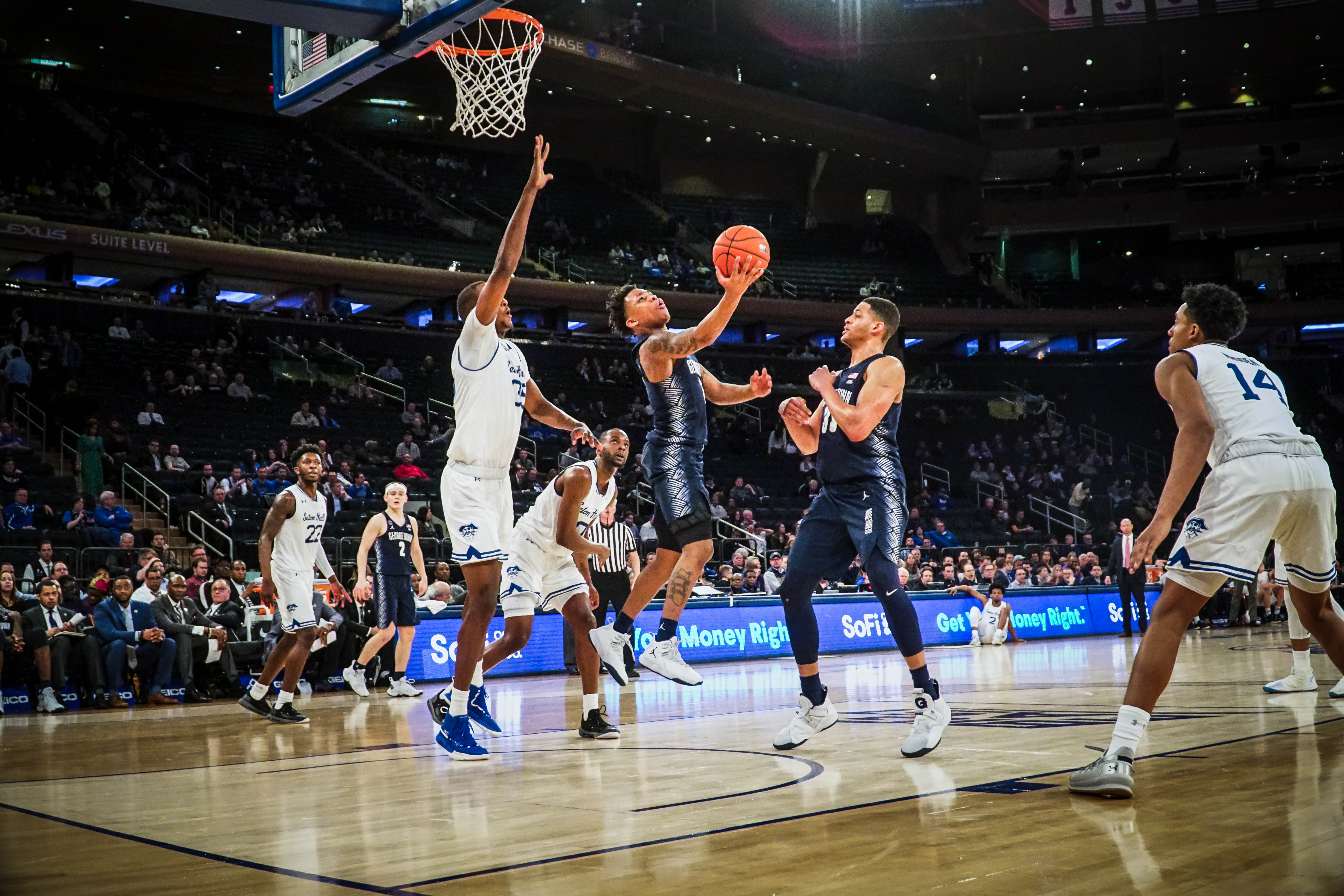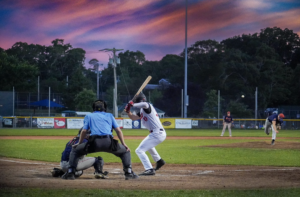The National Collegiate Athletic Association (NCAA) was founded under a different name in 1906. Its goal was to “protect young people from the dangerous and exploitative athletic practices of the time.” However, it would be naive to believe that its objective today is anything other than to profit on the backs of students. Some students are the stars of a multi-billion dollar show put on for the benefit of the NCAA and its member colleges. Meanwhile, at the very least, students lose the right to control their own image when they become college athletes.
The NCAA’s rules limit the amount schools can give students in exchange for their athletic labor. At most, schools can give their varsity sport-playing students a full-ride scholarship and stipend for the cost of living, some token meals, academic tutoring, and transportation. It was only five years ago the NCAA eliminated the rule that meant cream cheese could not be served next to bagels without violating students’ amateurism.
The imbalance here—glitzy TV deals and million-dollar coaching salaries against scholarships contingent on students’ continued participation in their sports—is an obvious problem.
For some students, this system is worth it. Typically, they are students who generate little revenue for their universities. They gain a leg-up in the admissions process but won’t receive a scholarship or have much chance of becoming a professional athlete. There are also many for whom an athletic scholarship can have a lot of value, especially those who would not otherwise attend college or who play a less popular sport. For them, the scholarship may be commensurate with their labor.
For those who could not otherwise afford to go to college, their scholarship shackles them to the team. Any solution to this imbalance must ensure that students can stop playing varsity sports without jeopardizing their academic futures. Their labor should guarantee them the opportunity to earn a degree. They should be given lifetime scholarships that are valid until completion, even if they decide to take a shot at a professional career and become ineligible to play college sports. Further, athletic scholarships should not be contingent on participation so students aren’t coerced into playing.
Some students, meanwhile, generate millions of dollars each year for their schools, often at great risk to their own health and future, with only college tuition as compensation. For a chance at going professional, these students labor without payment because of a multilateral scheme set up for universities’ profit: the NCAA.
It’s no wonder, then, that a California law is sending shockwaves through the college sports industry. When the Fair Pay to Play Act goes into effect in 2023, California schools will not be able to prevent their students from earning money from their “name, image, or likeness.” Subsequently, the NCAA would lose some of the financial control it has over college athletes.
The legislation passed unanimously and became law on Sept. 30. Nonetheless, opponents have argued that the law will change the character of the sports fans love. They believe the players’ amateurism makes the game more genuine, unlike professional sports where players might only be in it for the money.
For the majority of varsity athletes, this law would change nothing. Most players have no fame and play for the love of their sport and the camaraderie of their teammates. They would not earn much from sponsoring a brand’s products.
Meanwhile, Texas A&M student and track athlete Ryan Trahan was forced into a compromise by the NCAA that made him separate the water bottle company he co-founded and ran in high school from his name as a college athlete. Should Texas pass a similar law, Trahan could use his status as a track athlete to promote his company. Where a student musician has every right to express their dual identities as student and musician, a student who plays varsity sports has to silo their creative endeavors from their athletic ones.
Students who generate the most money for their schools—men’s football and basketball players—will be able to ink deals worth at least some fraction of their value to schools. They could pose with products, voice ad campaigns, or sell signed jerseys. This law will not make professionals out of college students—any more than they already are.
Eager to preserve the “integrity of the game,” the NCAA issued a statement in August condemning the law and pleading with states to let its internal rulemaking process work itself out. “Changes are needed,” the NCAA said in its statement. And indeed they are. But the NCAA has demonstrated for decades that its real intent is to exploit its laborers and give the proceeds to colleges and itself.
California’s bill is a good start and sorely needed. But unless states and Congress pass their own versions, the NCAA will simply exclude California universities from college athletics altogether. That would be a huge blow to the organization because California universities are some of its biggest brands. But without a nationwide coalition to continue to put pressure on the NCAA, the tide of change may stop here.
While allowing students to profit from their likeness is a promising start, it is insufficient. Lifetime scholarships are one measure to ensure student-athletes remain students, but the uneven relationship between colleges and their students is untenable. California’s law returns some power to its rightful owners. Regardless of industry or legal classification of the workers involved, this kind of monetary imbalance must be addressed, and other states must follow California in taking the first steps toward improving the lives of students who are athletes.





